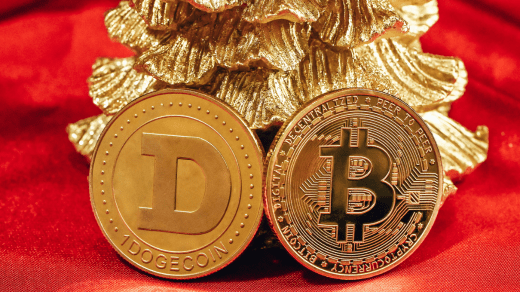
Blockchain technology has disrupted many industries by introducing a decentralized approach to data management. One of the most significant applications of blockchain technology is in the financial sector, where it has the potential to transform the way we transact, store value, and manage financial systems. At the core of this transformation is riot jobs, which plays a vital role in decentralizing financial systems. In this blog, we will explore the role of blockchain mining in the decentralization of financial systems.
What is Blockchain Mining?
Blockchain mining is the process of adding new transactions to the blockchain ledger by solving complex mathematical problems using specialized hardware. It is an essential process that helps secure the blockchain network, incentivizes network participants to maintain the network, and generates new units of cryptocurrency.
How Does Blockchain Mining Help Decentralize Financial Systems?
One of the key features of blockchain technology is its decentralized nature, which eliminates the need for intermediaries such as banks and financial institutions. Blockchain mining plays a crucial role in decentralizing financial systems by securing the network and enabling trust between network participants. This trust is essential because it allows participants to transact with each other without relying on intermediaries.
By decentralizing financial systems, blockchain mining can help reduce transaction costs, improve transparency and security, and increase financial inclusion. For example, blockchain-based remittance platforms can enable low-cost cross-border transactions and provide financial services to unbanked populations. In this way, blockchain mining can help create a more equitable and accessible financial system.
What are the Challenges of Blockchain Mining?
Despite its potential benefits, blockchain mining faces several challenges. One of the most significant challenges is energy consumption. Blockchain mining consumes a significant amount of energy, which contributes to greenhouse gas emissions and climate change. The vast majority of energy used in blockchain mining comes from non-renewable sources, such as coal and natural gas.
Another challenge is the centralization of mining power. As the blockchain network grows, it becomes more challenging for individual miners to compete with large mining pools, which can centralize mining power and potentially compromise the security of the network. However, the emergence of new mining hardware and the development of more efficient algorithms could help mitigate these challenges.
The Future of Blockchain Mining and Decentralized Financial Systems
Despite the challenges, the future of blockchain mining and decentralized financial systems is bright. As the blockchain industry continues to mature, many innovative solutions are emerging to address the challenges facing blockchain mining. For example, the use of renewable energy sources to power mining operations, carbon offsetting, and regulatory solutions are likely to play a significant role in mitigating the environmental impact of blockchain mining.
Moreover, the development of more efficient mining hardware and algorithms could help reduce energy consumption and increase network security. In the long term, these solutions could help make blockchain mining more sustainable and scalable, enabling the decentralization of financial systems to reach more people around the world.
Conclusion
Blockchain mining plays a vital role in the decentralization of financial systems, enabling trust between network participants and eliminating the need for intermediaries. By reducing transaction costs, improving transparency and security, and increasing financial inclusion, blockchain mining can help create a more equitable and accessible financial system.
However, the challenges facing blockchain mining, such as energy consumption and centralization of mining power, must be addressed to ensure the long-term sustainability and scalability of blockchain technology. With innovative solutions emerging, the future of blockchain mining and decentralized financial systems is bright, and we can look forward to a more equitable and decentralized financial future.
FAQs
Q: What is blockchain mining?
A: Blockchain mining is the process of adding new transactions to the blockchain ledger by solving complex mathematical problems using specialized hardware. It is an essential process that helps secure the blockchain network, incentivizes network participants to maintain the network, and generates new units of cryptocurrency.
Q: How does blockchain mining help decentralize financial systems?
A: Blockchain mining plays a crucial role in decentralizing financial systems by securing the network and enabling trust between network participants. This trust is essential because it allows participants to transact with each other without relying on intermediaries, such as banks and financial institutions.
Q: What are the benefits of decentralized financial systems?
A: Decentralized financial systems can reduce transaction costs, improve transparency and security, and increase financial inclusion by eliminating the need for intermediaries.
Q: What are the challenges of blockchain mining?
A: The challenges facing blockchain mining include energy consumption and the centralization of mining power. The vast amount of energy consumed by blockchain mining can contribute to greenhouse gas emissions and climate change. The centralization of mining power can potentially compromise the security of the network.
Q: How can the challenges of blockchain mining be addressed?
A: Innovative solutions, such as the use of renewable energy sources to power mining operations, carbon offsetting, and regulatory solutions, are emerging to address the challenges facing blockchain mining. The development of more efficient mining hardware and algorithms could also help reduce energy consumption and increase network security.
Q: What is the future of blockchain mining and decentralized financial systems?
A: The future of blockchain mining and decentralized financial systems is bright, with innovative solutions emerging to address the challenges facing blockchain mining. The use of renewable energy sources, the development of more efficient mining hardware and algorithms, and regulatory solutions are likely to play a significant role in the long-term sustainability and scalability of blockchain technology.
For more information, please visit our website : www.blockquarry.io